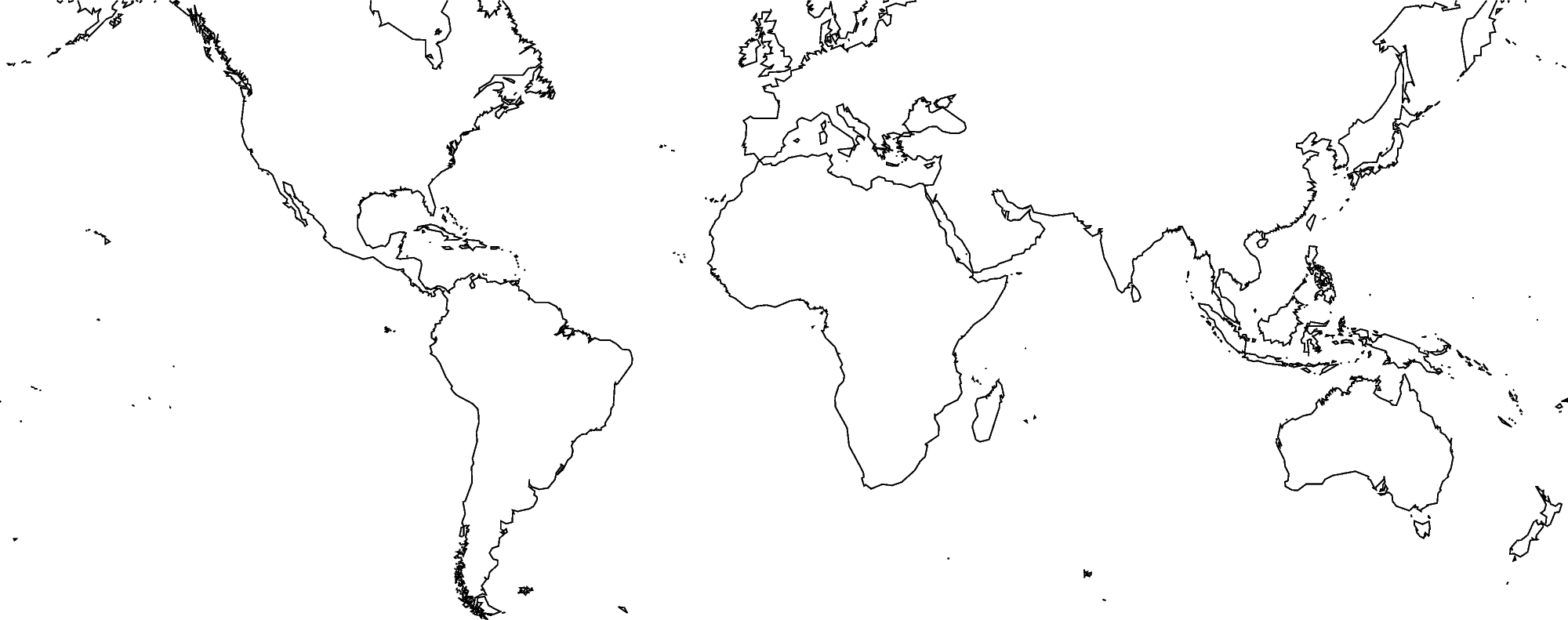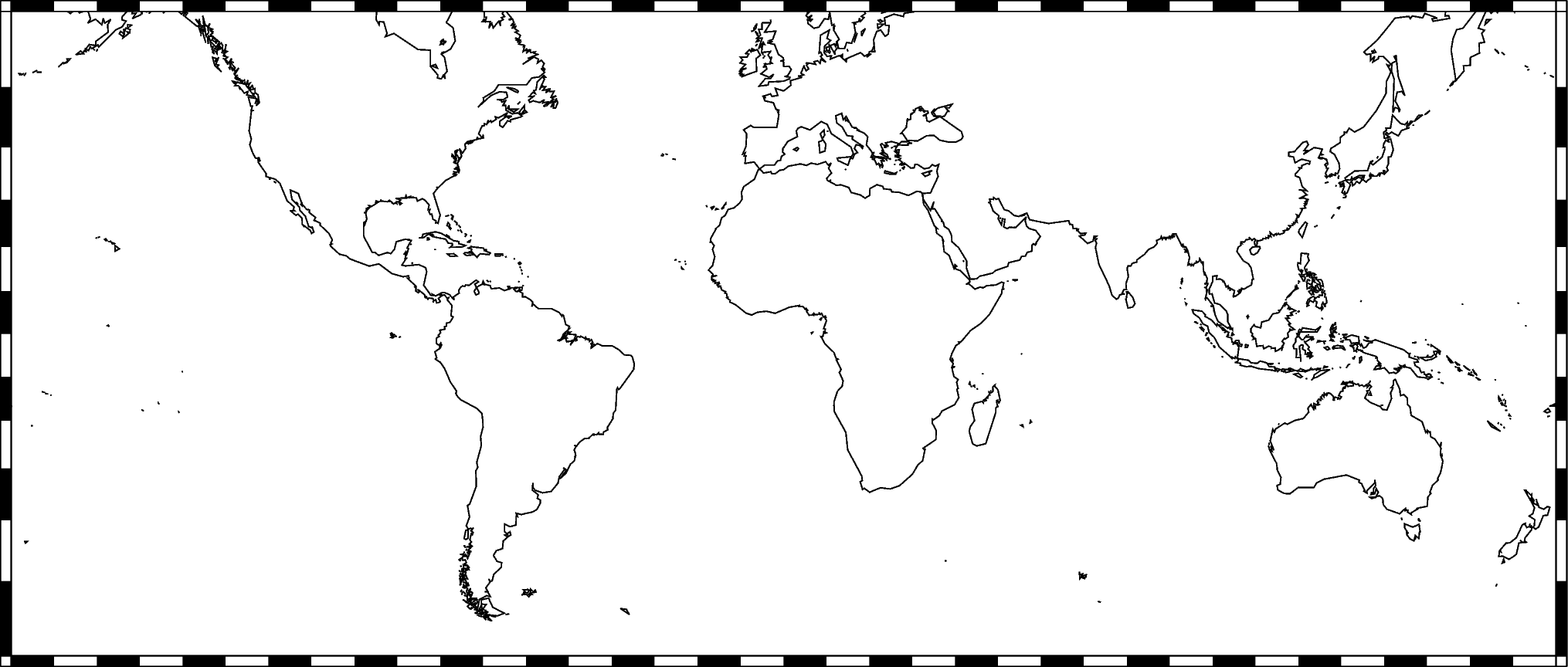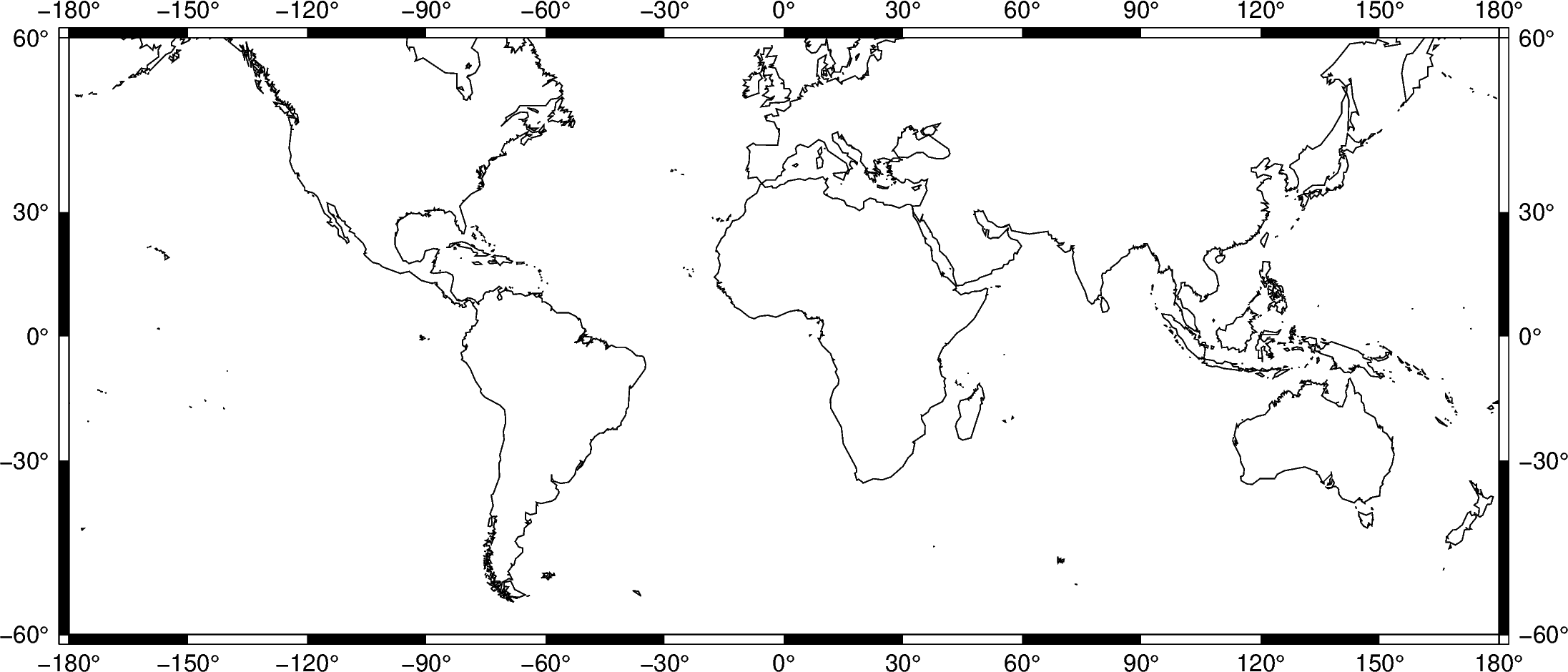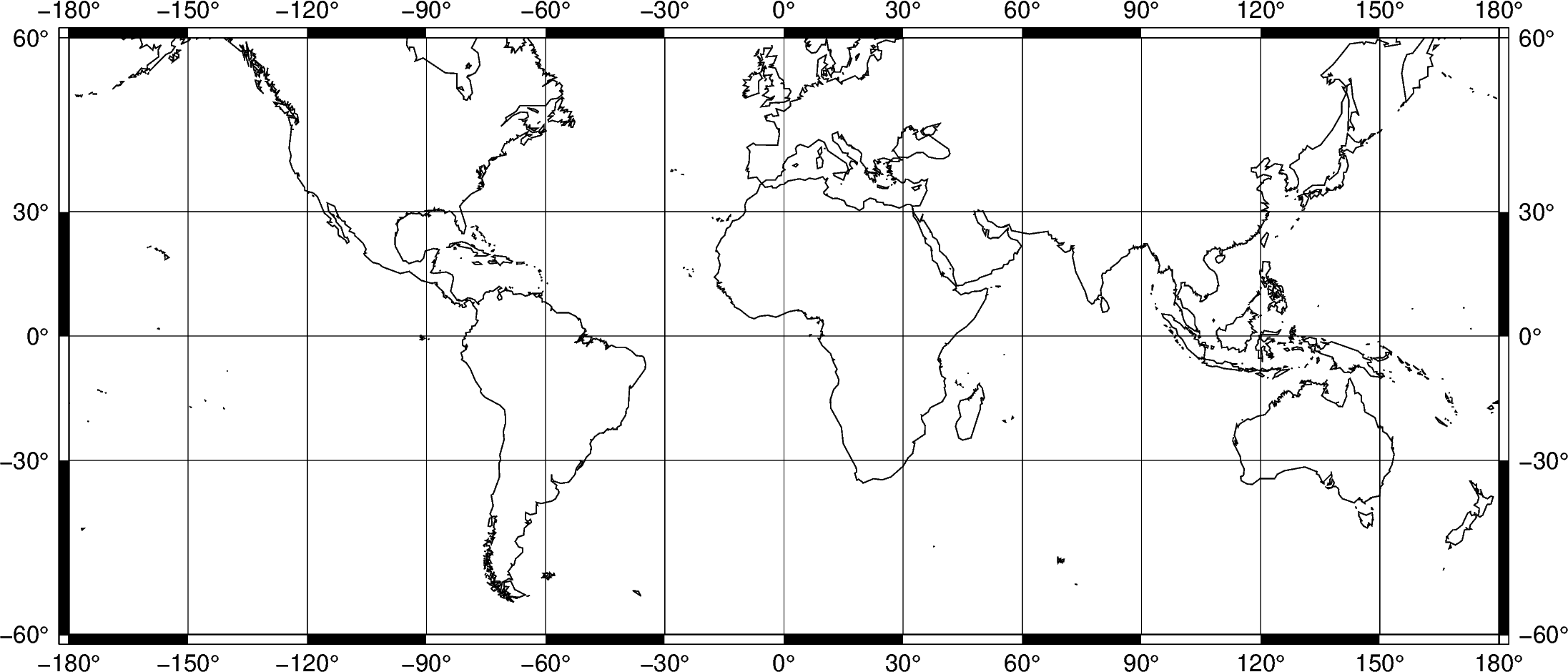Note
Click here to download the full example code
Frames, ticks, titles, and labels¶
Setting the style of the map frames, ticks, etc, is handled by the frame argument
that all plotting methods of pygmt.Figure.
import pygmt
Plot frame¶
By default, PyGMT does not add a frame to your plot. For example, we can plot the coastlines of the world with a Mercator projection:
fig = pygmt.Figure()
fig.coast(shorelines="1/0.5p", region=[-180, 180, -60, 60], projection="M10i")
fig.show()

Out:
Debugging:
inline_display: False
disable_external_display: True
To add the default GMT frame to the plot, use frame="f" in
pygmt.Figure.basemap or any other plotting module:
fig = pygmt.Figure()
fig.coast(shorelines="1/0.5p", region=[-180, 180, -60, 60], projection="M10i")
fig.basemap(frame="f")
fig.show()

Out:
Debugging:
inline_display: False
disable_external_display: True
Ticks and grid lines¶
The automatic frame (frame=True or frame="a") sets the default GMT style frame
and automatically determines tick labels from the plot region.
fig = pygmt.Figure()
fig.coast(shorelines="1/0.5p", region=[-180, 180, -60, 60], projection="M10i")
fig.basemap(frame="a")
fig.show()

Out:
Debugging:
inline_display: False
disable_external_display: True
Add automatic grid lines to the plot by adding a g to frame:
fig = pygmt.Figure()
fig.coast(shorelines="1/0.5p", region=[-180, 180, -60, 60], projection="M10i")
fig.basemap(frame="ag")
fig.show()

Out:
Debugging:
inline_display: False
disable_external_display: True
Total running time of the script: ( 0 minutes 2.613 seconds)